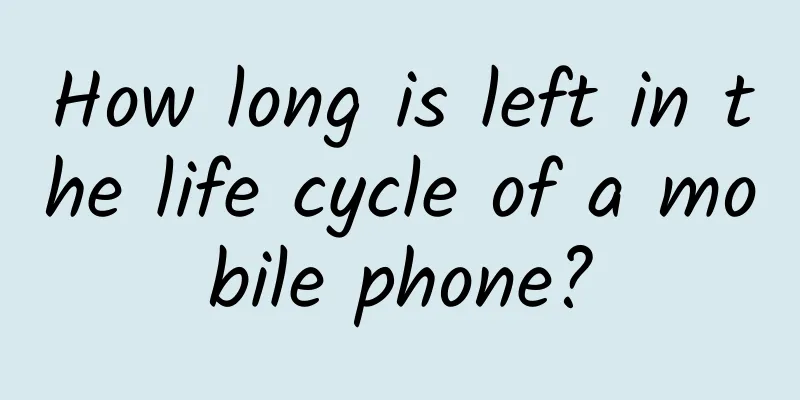Do we really need three meals a day?

|
The idea of "three meals a day" is very popular today. How many meals a day is best for our health? You probably eat three meals a day - modern life is designed around this way of eating. We're taught from a young age that breakfast is the most important meal of the day, we have lunch at work, and then we build our social life and family life around dinner. But is this the healthiest way to eat? Before we consider how often we eat each day, scientists are urging us to consider: When shouldn’t we eat? Intermittent fasting, where you restrict your food intake for eight hours, is becoming a very important area of research. Copyright image, no permission to reprint Our bodies are wired to go without food for at least 12 hours a day, ideally to give our digestive system a rest, says Emily Manoogian, a clinical researcher at the Salk Institute for Biological Studies in California and author of a 2019 paper titled "When to Eat." Rozalyn Anderson, an associate professor at the University of Wisconsin School of Medicine and Public Health, has studied the benefits of caloric restriction, which is associated with lower levels of low-grade inflammation in the body. "Fasting at the right time of day has some benefits," she said. "Fasting puts the body into a different state where it is more likely to monitor and repair damage and clear out misfolded proteins, which are incorrect versions of normal proteins." Normal proteins are molecules that perform a multitude of important jobs in the body. Misfolded proteins are implicated in many diseases. Anderson believes that intermittent fasting is more in line with the way our bodies evolved. She says that doing so gives the body a break so it can store food and move energy to where it’s needed, triggering mechanisms that release energy from our body reserves. Copyright image, no permission to reprint Fasting can also improve our glycemic response, the rise in blood sugar after a meal, says Antonio Paoli, a professor of exercise and sports science at the University of Padova in Italy. A small rise in blood sugar can cause your body to store less fat, he says. "Our data suggest that eating dinner earlier and extending your fasting period increases the number of positive effects on the body, such as better blood sugar control," Paoli said. Paoli also added that it's better to have lower levels of sugar in all cells because of the process of glycation. This is where glucose attaches to proteins and forms "advanced glycation end products," compounds that can trigger inflammation in the body and increase the risk of diabetes and heart disease. Copyright image, no permission to reprint But if intermittent fasting is a healthy way to eat, how many meals can we still give our bodies? Some experts believe that eating just one meal a day is best, like Professor David Levitsky (from the School of Human Ecology at Cornell University in New York), who does this himself. “There’s growing data that if I show you food or pictures of food and it stimulates your appetite, the more often that food is in front of you, the more you’re going to eat,” he said. That's because, before we had fridges and supermarkets, we ate whenever we had food. Throughout history, we've eaten just one meal a day, including the ancient Romans who ate a single meal at midday, says food historian Seren Charrington-Hollins. Wouldn't one meal a day make us feel hungry? Not necessarily, Levitsky argues, because hunger is usually a psychological feeling. “We may feel like eating when the clock says 12pm, or we may be conditioned to eat breakfast in the morning, but that’s nonsense. The data shows that if you skip breakfast, you’ll eat fewer calories that day. "Our biology is designed to enjoy life and fast," he said. However, Levitsky does not recommend this dietary approach for people with diabetes. Copyright image, no permission to reprint Manoogan doesn't recommend sticking to one meal a day because it can raise your fasting blood sugar levels. Chronically high fasting blood sugar levels are a red flag for type 2 diabetes. To keep fasting blood sugar levels low, eating more meals each day is important, Manoogan says, because it prevents the body from misinterpreting itself as hungry and responding by eating, releasing more glucose. Two to three meals a day are best, she says. Most of the calories you consume are consumed early in the day. Late-night eating has been linked to cardiometabolic disease, including diabetes and heart disease. "If you eat the bulk of your meal early in the day, your body can put the energy you feed it throughout the day to good use instead of storing it as fat in your metabolic system," Manoogan says. But she said we should also avoid eating too early in the morning because you don't have enough time to fast. In addition, eating too soon after waking up goes against our circadian rhythm, or our body clock, which researchers say determines how the body processes food throughout the day. Our bodies release melatonin at night to help us sleep, but melatonin also pauses the production of insulin, which is used to store glucose in the body. Because melatonin is released while you sleep, the body uses it to ensure that we don't take in too much glucose while we sleep and don't eat, Manoogan says. “If you consume calories when your melatonin levels are high, your blood sugar levels will be very high. Eating a lot of calories at night poses a major challenge to the body because, if insulin secretion is suppressed, your body cannot store glucose properly.” Moreover, it is well known that consuming high levels of glucose for a long time increases the risk of type 2 diabetes. This doesn't mean we shouldn't eat breakfast. But some evidence suggests we should wait until one to two hours after waking up to crack open our eggs. It's also worth remembering that breakfast as we know and love it today is a relatively new concept. Copyright image, no permission to reprint “The concept of breakfast was first introduced by the ancient Greeks, who ate bread soaked in wine, followed by a frugal lunch and a full dinner,” Charrington-Hollins said. Eating breakfast first became popular in the 17th century, when it was exclusive to the aristocracy, and has since become a luxury for those who can afford the food and a leisurely meal time. "The standard concept of breakfast today came about in the 19th century with the Industrial Revolution and the introduction of working hours," Charrington-Hollins said. Such habits were suitable for three meals a day. "For the working class, the first meal was quite simple, perhaps a snack or bread sold by a street vendor." But after the war, when food supplies dwindled, eating a full breakfast was out of the question, and many people stopped eating breakfast. "The idea of three meals a day had become obsolete," Charrington-Hollins said. "In the 1950s, breakfast became what we're familiar with today: cereal and toast. Before that, we were happy with a slice of bread with jam." So science seems to suggest that the healthiest way to eat is to eat two or three meals a day, with long overnight fasts, not eat too early or too late in the day, and consume more calories earlier in the day. Is this realistic? It's best not to specify optimal times to eat, Manoogan said, because that can be difficult for people with work responsibilities and irregular time commitments, such as those who work the night shift. “Asking people to stop eating before 7pm isn’t helpful because people have different schedules. If you try to prime your body to fast regularly, and try not to eat too late or too early, and not to eat too much at the last meal, that usually works. People can live with at least some of that advice,” she said. “You can see dramatic changes from just a small delay in the first meal of the day and finishing the last meal earlier. Making these changes a regular routine without changing anything else can have a big impact.” But researchers agree that no matter what changes you make, consistency is crucial. “The body works in patterns,” Anderson says. “We respond in anticipation of the act of being fed. One of the things that intermittent fasting does is it enforces that pattern, and our biological systems work really well in that pattern.” The body anticipates our eating behaviors based on routines, she says, so that when we eat, it can best process the food. When it comes to what we consider normal meal sizes, Charrington-Hollins sees hope for change. “For centuries we have been used to eating three meals a day, but now, this is being challenged and attitudes to food are changing. We have more stable lifestyles and don’t do the same jobs we did in the 19th century, so we need fewer calories. “I think in the long term we’ll start by cutting out a light meal and then a full meal, depending on what we’re working. The length of time we’re working will be the driver of what we eat. "When society stopped rationing, we accepted three meals a day because food was suddenly abundant. But as time went on, food became ubiquitous." Source: Global Science (ID: huanqiukexue) Original link: https://www.bbc.com/future/article/20220412-should-we-be-eating-three-meals-a-day The watermarked images and cover images in this article are from the copyright gallery and are not authorized for reproduction |
>>: Urgent reminder! The venom is as strong as sulfuric acid, don't take pictures!
Recommend
How much does dog meat cost per pound in 2021? How much does cooked dog meat cost per pound now?
With the arrival of National Day, the weather in ...
Joint statement by Sanmao's family and the copyright holder (with original text)
Joint statement by Sanmao's family and copyri...
Freezing means eternal life? After this deadline, please "throw away" frozen meat!
Review expert: Peng Guoqiu, deputy chief physicia...
A programmer who has always worked from 9 to 5
[[229247]] I’ve been thinking a lot lately about ...
A female internet celebrity weighing 312 pounds died in a weight loss camp! For severely obese people, this weight loss method is more reliable than excessive exercise
Recently, the news that the 312-pound internet ce...
Blockchain mobile phone is still a false proposition after all
[[224147]] As blockchain technology becomes more ...
Your phone battery is not durable again. You ignored these charging details...
Do you sometimes wonder: Why does the battery of ...
How can we as a self-media person receive and complete more orders?
In general, I think, first of all, you must dare ...
Abaoye Tarot Xiaohongshu Project, teach you how to generate traffic and how to realize the value of 1,700 yuan
Abaoye Tarot Xiaohongshu Project, teach you how t...
Douyin Blue V certification failed, how to submit successfully?
What’s hot right now? Of course, it’s the self-me...
Zhiji Auto and Volcano Engine have reached in-depth cooperation in the fields of model application and algorithm
On April 25, 2024, the 2024 Beijing International...
3 steps to effectively improve the user retention rate of your product!
After entering the stock market, user value becom...
NetQin announced its brand strategy in May: entertainment transformation focuses on
With the decline of Nokia, NetQin, which rose on ...
How can TO B operations reach new heights without anyone to lead or learn from?
In the Internet space, the word " operation ...
What is channel operation?
Channel , we all know that channel has a synonym:...









